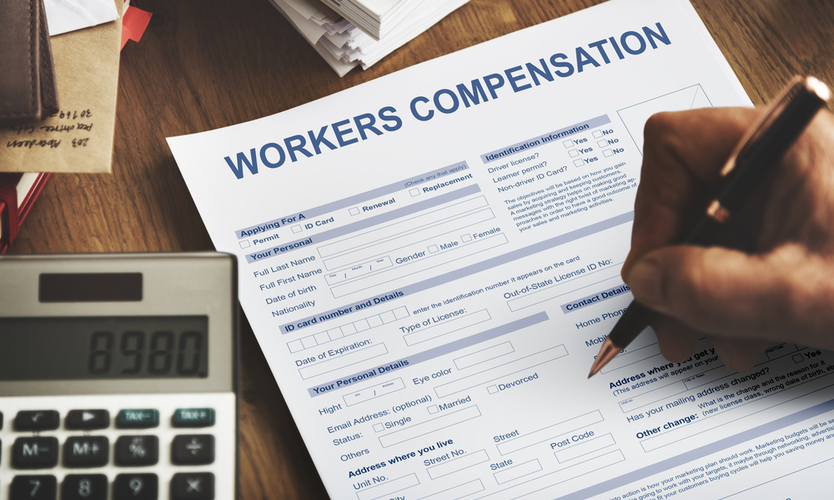Understanding the risks and benefits of workers’ compensation insurance | ADP will help you decide whether or not it’s right for your business. Whether you’re self-insured or seeking to insure against terrorism, selecting a policy that fits your business is essential. Learn more about rates and experience ratings. First, read on to discover the risks and benefits of self-insurance.
Table of Contents
Self-insured workers’ compensation insurance
Self-insured employers must apply for the program through a different process in every state. In addition, they must meet specific requirements, such as meeting the program’s financial obligations and complying with Cal/OSHA safety and health regulations. Most self-insured employers contract with third-party administrators to oversee their claims. Some self-insured employers can handle claims administration in-house, but they must first qualify for the program through an application process.
While pursuing self-insurance, employers must consider the cost of workers’ compensation and their willingness to bear risk. Many employers prefer self-insurance because it increases cash flow, allows for more control over overcharges, and empowers them to address claims proactively. Self-insurance, however, has its drawbacks. If a catastrophic injury or a higher loss occurs, the company will be on the hook for the cost. In addition, self-insured employers are still required to meet annual filing requirements.
Experience rating
What is the Experience Rating of Workers’ Compensation Insurance? Experience Rating is how insurance companies calculate the premium cost for their clients. Typically, it is based on the number of claims the company has experienced and the payroll of its employees. This is done by computing a “loss experience score,” comparing actual losses to expected losses. Experience Ratings are revised every three years, and the current rating will be reflected in premium costs as of the effective date of the modification.
Experience rating is a mandatory program that measures the risk of an individual company based on its claims experience. The experience modifiers are multiplied by the premium amount, and those with lower backgrounds have lower experience ratings. The overall effect is to provide a more reasonable premium cost to employers, which helps spread the costs over a larger group of employees. It also encourages employers to return injured workers to work as quickly as possible.
Terrorism risk insurance
In recent years, the market for terrorism risk insurance has been relatively stable, with coverage generally available and affordable. But reports from the Treasury Department and interviews with industry stakeholders have pointed to some potential disruptions. In the absence of TRIA, insurers are likely to increase premiums and purchase additional reinsurance. In the meantime, rates may rise, and the market for terrorism risk insurance will likely become more limited.
Depending on the geographic region, insurers may choose not to offer terrorism risk coverage or charge higher premiums without a loss-sharing arrangement. However, many insurers have noted that the lack of coverage can delay the opening of new construction projects and cause employers to struggle to find workers’ compensation insurance. According to Marsh, these limitations are in place to protect small and mid-sized insurers and employers from potential financial losses due to terrorism.
Rates
Worker’s Compensation insurance rates are regulated to protect policyholders and the public. These laws encourage independent action by insurers and competition. The National Council on Compensation Insurance (NCCI) cites K.S.A. 40-1111(a) and (c) and K.S.A.1998 Supp.
The NCCI, which produces rates for insurers in many states, says its latest rate filing for 2018 will result in a nearly 18 percent decrease. Employers in Florida will save more than $610 million due to the reduction. This is a 60% reduction since 2003. But the news isn’t all positive. The rate reductions are not permanent. The NCCI will need to file another rate impact filing to reflect these changes.
Accident reporting
Accident reporting is crucial for workers’ compensation insurance claims. Employees must immediately report work-related injuries or illnesses to their supervisor. Failing to do so could result in losing workers’ compensation benefits. Each state has its claim form, but workers should contact the workers’ compensation board in their state to obtain a copy.
Upon reporting an injury, employees must follow the procedures required by their employers. The employee must submit to medical examinations, attend hearings, and follow return-to-work instructions. In addition, the employee must work diligently to receive treatment and report the incident. Additionally, the employee must complete the required accident report available at Human Resources. If an employee is injured while working on campus, the Physical Facilities will notify Environmental Health & Safety, investigate, and take appropriate action.




